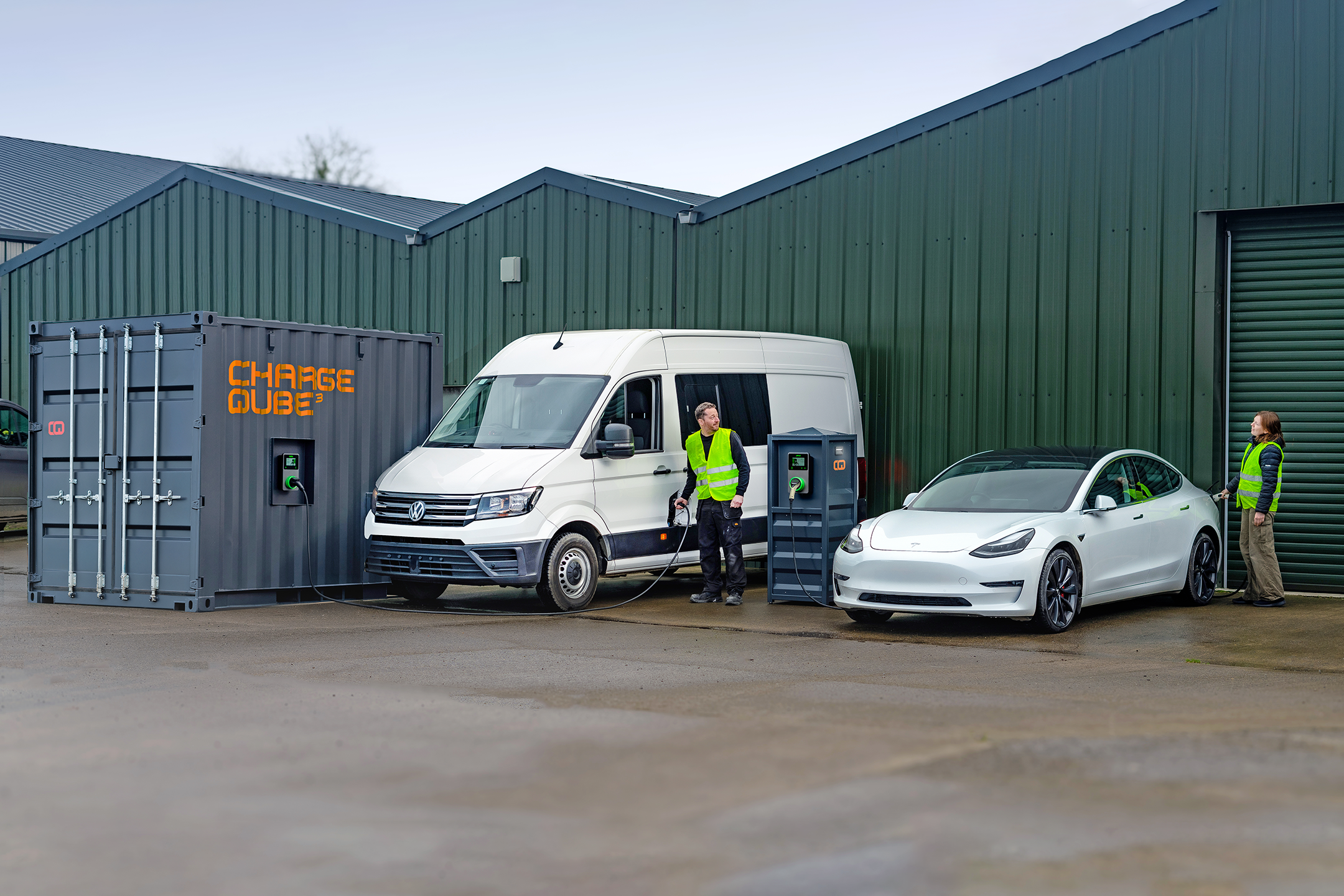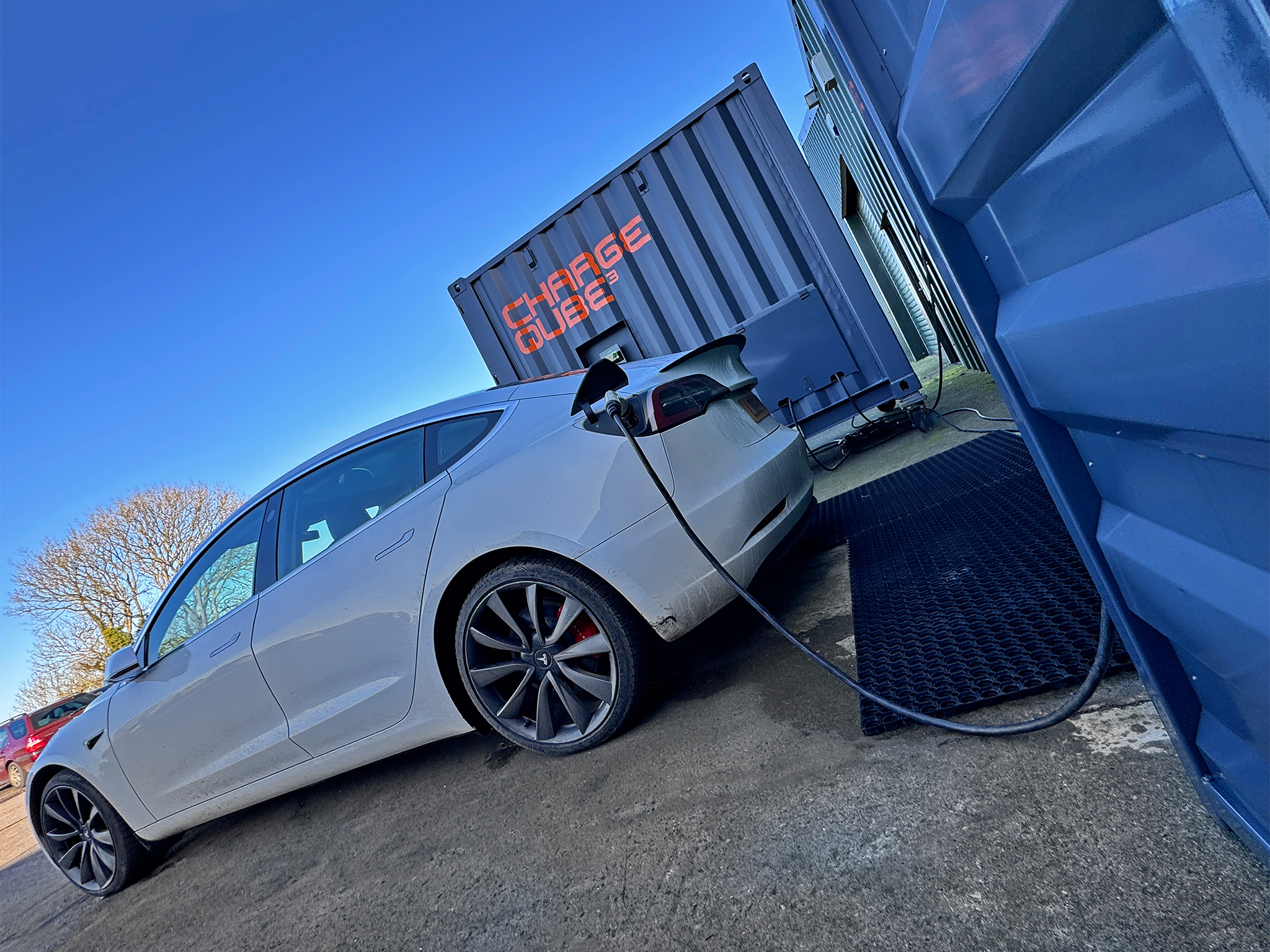Container-based ‘portable’ EV chargers set to boost UK’s charging network
Charge Qube uses shipping containers and recycled electric car batteries to overcome grid connection and planning problems

Planning restrictions and problems with grid connections are cited as the most common reasons for the delay in the rollout of the UK’s charging infrastructure, especially when it comes to the government’s £950m Rapid Charging Fund, which has yet to be touched.
To get around these problems, Bristol-based electric car specialist Fellten has developed a ‘portable’ EV charger solution that makes use of recycled electric car batteries and old shipping containers.
Fellten is most famous for reimagining classic cars as EVs, with conversions available for the original MINI, Porsche 911 and classic Land Rover Defender. But the company has put its electric car engineering know-how to good use to develop the Charge Qube, a mobile, flexible charging solution that stores energy in repurposed EV battery packs and can charge multiple vehicles, with or without a grid connection.
It’s ideal for locations where permanent charging stations aren’t feasible due to infrastructure limitations or planning restrictions, and can be deployed at van, HGV, and fleet depots, EV charging hubs, construction sites, outdoor events and even festivals.
A 10-foot Charge Qube can house up to six 75kWh battery packs, offering a total capacity of 450kWh. Larger 20ft containers can store up to 900kWh, supporting overnight AC charging for multiple vehicles (up to 12 at 7kW per port) and a rapid 22kW daytime top-up option.

For fast charging, the Qube can also be equipped with a pair of 240kW CCS chargers, supporting both 400V and 800V charging.
The Charge Qube is manufactured in Bristol and is built from repurposed shipping containers. The 3.5 tonne units are delivered by flat-bed truck and can be deployed in under two hours. Power sources include the grid, solar panels, and vertical wind turbines. For higher energy demands, Fellten says that multiple Qubes can be linked together seamlessly.
Batteries from various electric cars can be integrated, ensuring flexibility and supply chain resilience. These automotive-grade battery packs are designed to endure the extreme demands of vehicles. When they’re used in their second life they operate under significantly less stress and are said to last even longer.
Fellten CEO Chris Hazell says, “second-life EV battery packs – retaining over 85 per cent of their original capacity – mean lower costs, reduced carbon footprint, and a closed-loop battery recycling system.”
Join our commenting forum
Join thought-provoking conversations, follow other Independent readers and see their replies
29Comments